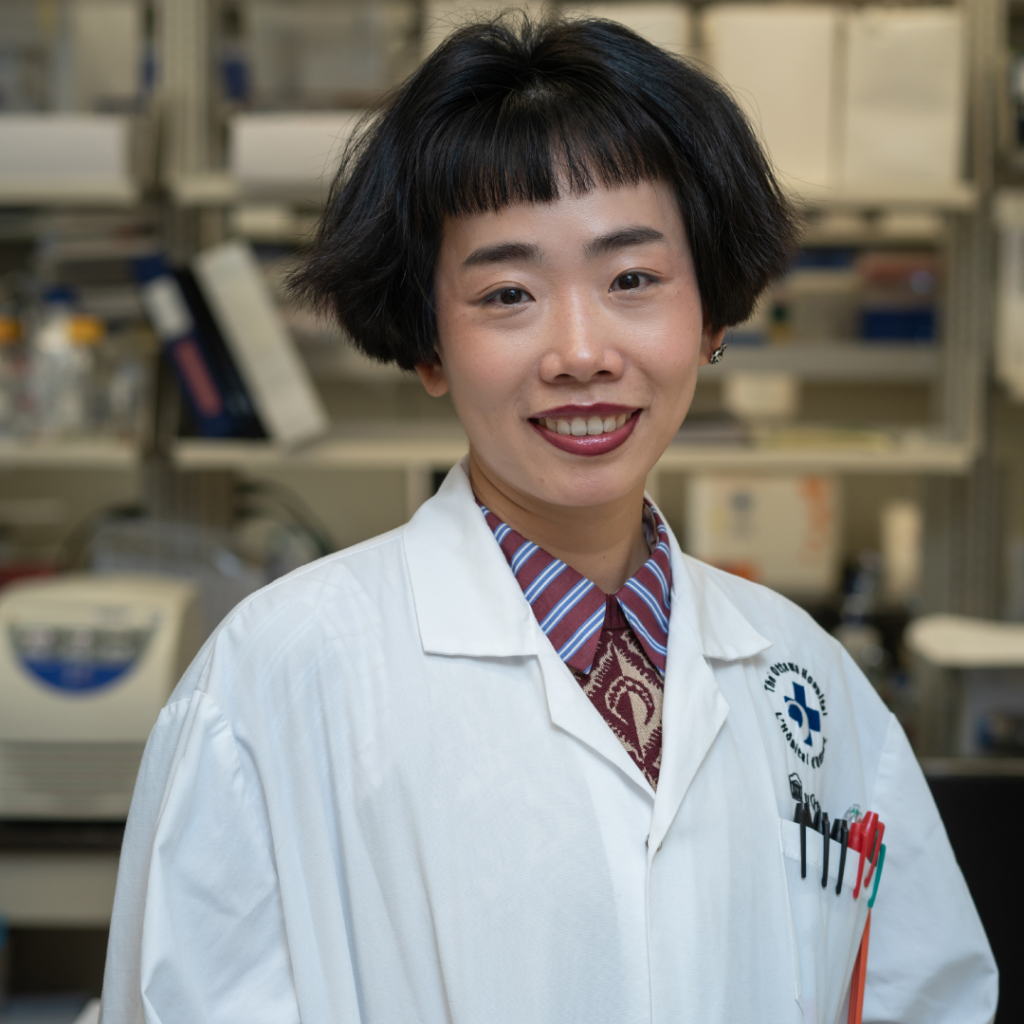
If you ask Yuan Tan if she believes in aliens, she’ll laugh, then give a reasoned response. That balance of reason and whimsy accurately describes the immunology PhD student slash vintage shop owner’s approach to every aspect of her life — from choosing what to study to choosing what to wear.
The 2024 Worton Researcher in Training Award winner is a star in her field of immunology, and her work on how we can use stem cells to treat COVID-19, the flu, and sepsis is bringing critical discoveries one step closer to patients’ bedsides.
Want to know about Yuan’s career aspirations (beyond award-winning researcher) and what her answer is about aliens? Keep reading to find out.
Q: Can you tell us a little about your early years?
A: I was born in China and grew up in Beijing until middle school. My family immigrated to Canada after Grade 9, and I finished high school in Toronto. My family’s background is in the life sciences: my grandpa was a trauma surgeon, my father is a pharmacist, and my mother is a nurse. The whole family is in the field of biology and medicine.
For hobbies, I’m from a very typical Chinese family, where I think it’s part of the culture to have a lot of pressure to learn. So, my mom put me through a lot of classes to cover all my bases and see what I was interested in. I also learned to play piano, dance, and do Chinese calligraphy.
Q: What did you want to be when you grew up?
A: I really wanted to be an astronaut, and I still do. My grandpa always brought me to the science museum and planetarium, and I always wished I could just go into space. I was amazed by it.
As I continued to study, I was more drawn to biology. I guess my family background means I have a natural interest in it. But astronomy and biology have something similar: it’s about the unknown and the known. There’s so much we know about biology and the planet, but we also don’t know so much.
I applied to the SpaceX program to bring civilians to space, and while I didn’t get selected, it’s still in the back of my head that I want to travel to space one day. I dream about it. The kinds of cells I study have also been grown in the International Space Station, and I think it would be interesting to study biology beyond Earth or in zero gravity.
Q: How did you wind up as an immunology and cell therapy researcher?
A: In my final year of high school, my grades showed I had a relatively good understanding of biology compared to other subjects. I applied to the University of Toronto for a very general life sciences program, and one of the subjects was immunology. That triggered my interest, the idea of the human body trying to defend itself. Most of the time, it can defend itself and do the right thing, but sometimes it goes haywire, and your body falls apart.
For my masters, I found Dr. Lisheng Wang at the University of Ottawa to be my supervisor. My topic was about stem cell transplant immunology, but the work was very molecular. I was looking at what signalling is happening in immune cells that triggers the rejection of an organ transplant. I loved it, but I didn’t know what to do next.
Dr. Wang’s lab was pure biology, and I wanted to do something where I could see the impact on patients. Then I saw a job posting for Drs. Duncan Stewart and Shirley Mei’s lab at The Ottawa Hospital about developing an assay for a stem cell therapy clinical trial for patients with septic shock. An assay is a test of the quality and activity of the cells before they are given to patients. They needed someone with an immunology and stem cell background. I was like, “Oh, I can do that!” Once I got into that field, I decided to continue with a PhD with Drs. Stewart and Mei as my supervisors.
Q: Can you describe your current research — for which you won the Worton Researcher in Training Award?
A: I study mesenchymal stem cell (MSC) therapy. MSCs are first found in the bone marrow and help develop the immune system. When I first started, I was looking at sepsis. But, three months in, COVID happened. COVID causes something similar to sepsis, so we quickly started looking at severe viral infections.
We’re using live MSCs that can adapt to their environment. We didn’t know how these cells sensed what was surrounding them when they were put in an environment. So, we put them in different disease settings — COVID-19, the flu, or sepsis. We got blood samples from patients in the intensive care unit who had either COVID, the flu, or sepsis, added stem cells to the blood, and looked to see what changed in the stem cells and blood samples. Our hypothesis is that we can harness the sensing functions of these MSCs to improve patient outcomes.
Q: How will this research help patients at The Ottawa Hospital?
A: MSC research has been going on for decades. I want to push this towards a treatment for severe sepsis, but we haven’t always seen consistent results in clinical trials. This inconsistency can come from a wide range of reasons, including the need for more research into how MSCs behave in specific disease conditions. If we hone down that inconsistency, we can make MSCs into an actual product and get it into patient treatment faster.
Q: What is TOH doing in your field that’s exciting or groundbreaking?
A: The Ottawa Hospital is doing amazing work bridging research and patient care. I know so many trainees and friends doing interesting work, and the hospital is pushing hard to translate that work into patient impact. I also have access to all the new technology to support my research. As there will always be new instruments coming, it’s important to have the infrastructure for it. The hospital also allows us to collaborate with multidisciplinary teams: there are scientists, basic researchers, clinicians — it’s an environment that really supports the next level of translation.
Q: What does it mean to win the Worton Researcher in Training Award?
A: I’m super honoured and excited to receive this award. It’s encouragement and recognition. It motivates me to continue going on my career. I know a lot of people doing groundbreaking research at The Ottawa Hospital, so this is really pushing me forward.
Q: Where would we find you when you’re not deep in research?
A: I’m always scavenging for new food. There’s this mom-and-pop shop near Preston called K, LET’S EAT, and then there’s Pizza Nerds, Corner Peach, Chesterfield’s Gastro Diner, Sharpfle Waffle, Paper Tiger … these are some of my favourites right now.
I also started an online vintage shop; I’m trying not to overconsume. I think it’s good to bring a bit of weirdness to your fashion, and so I love thrifting and vintage finds as a way to shop that’s more unique and sustainable.
Whenever I have time, I travel. I try to do one or two trips a year, see new cultures, meet new people. Everywhere I travel, there are always really kind people. Bolivia had the most shocking view — the salt flats there. And then I did Machu Picchu, which was a bucket list trip. I also went to Egypt to see the pyramids to see if they really were made by aliens.
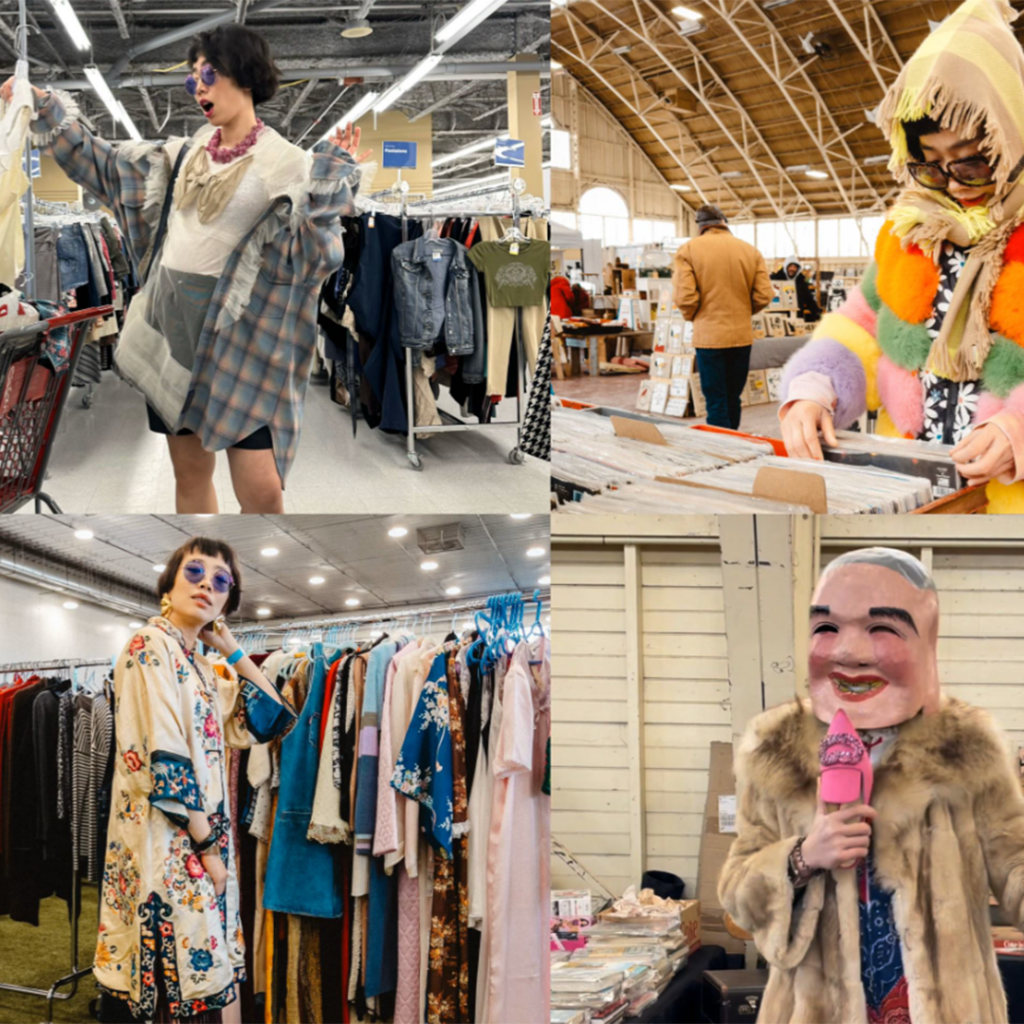
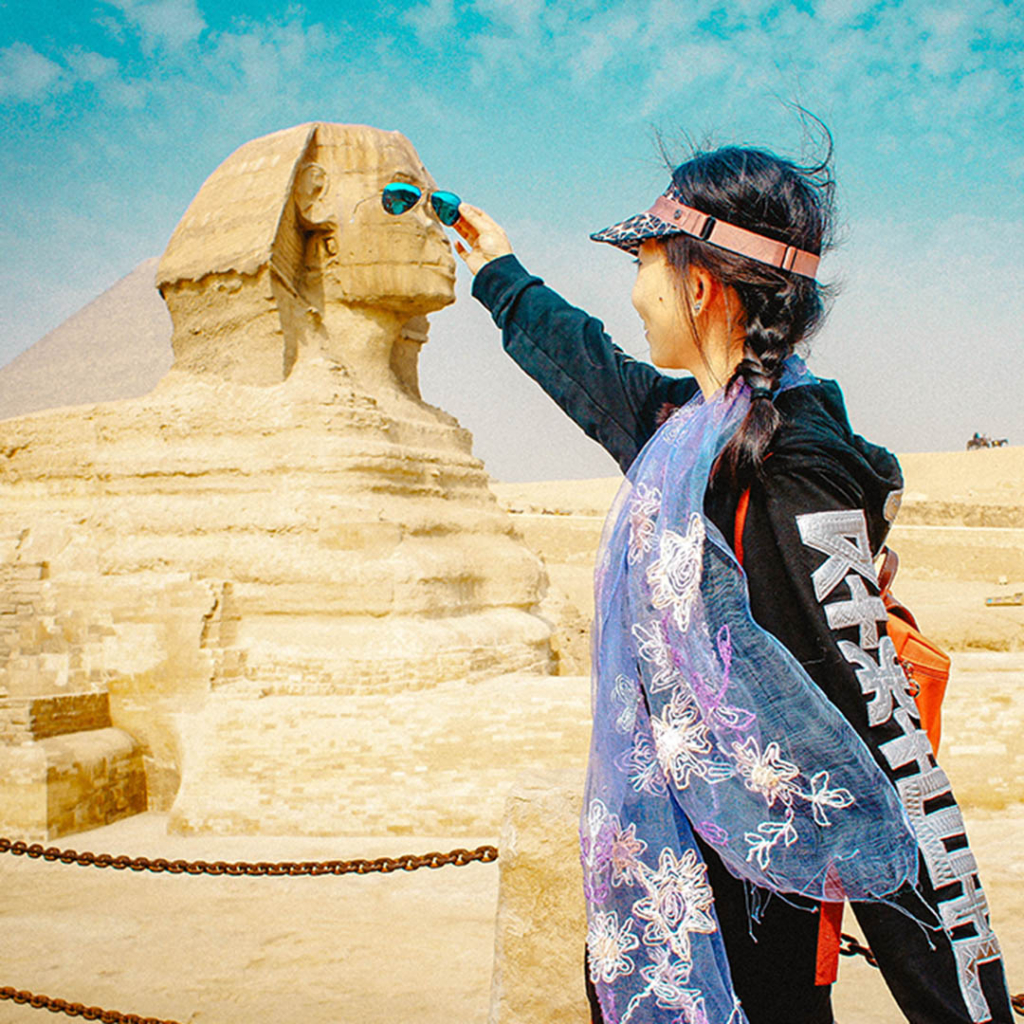
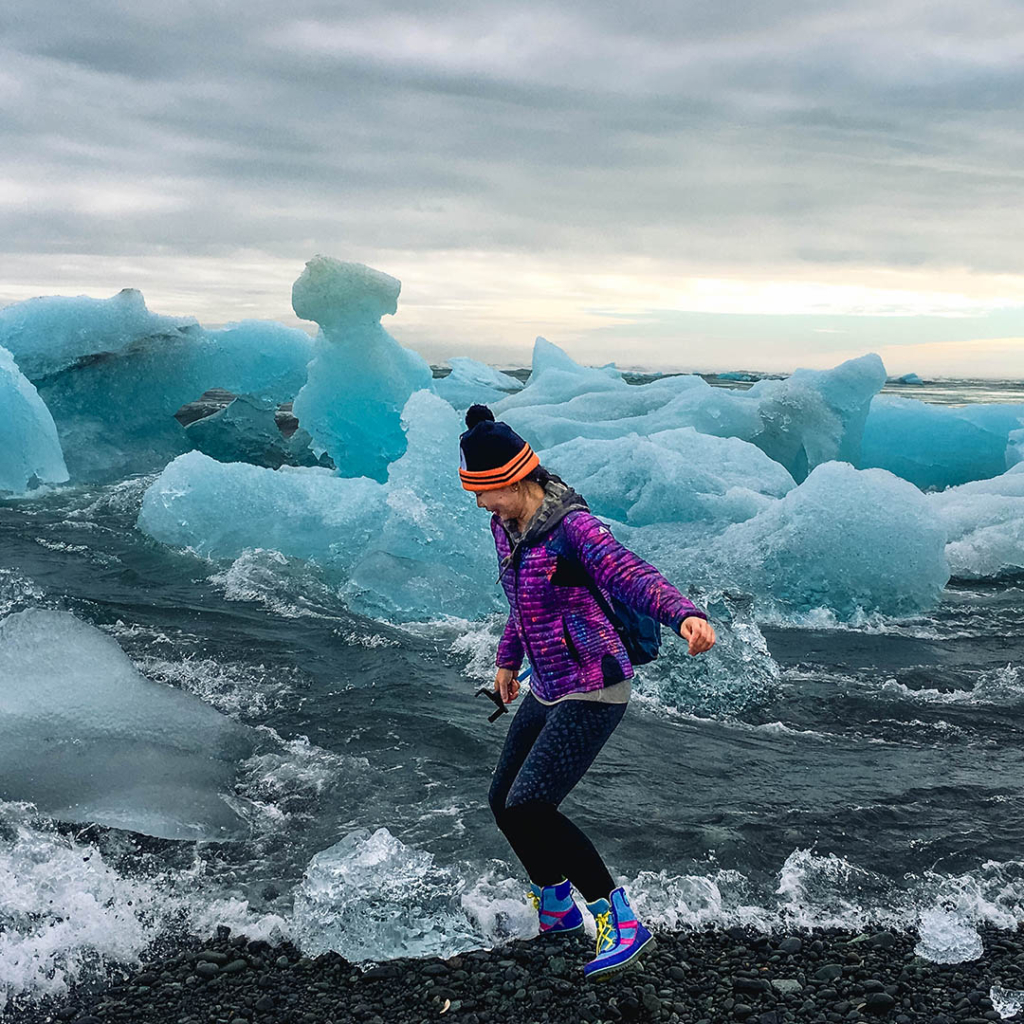
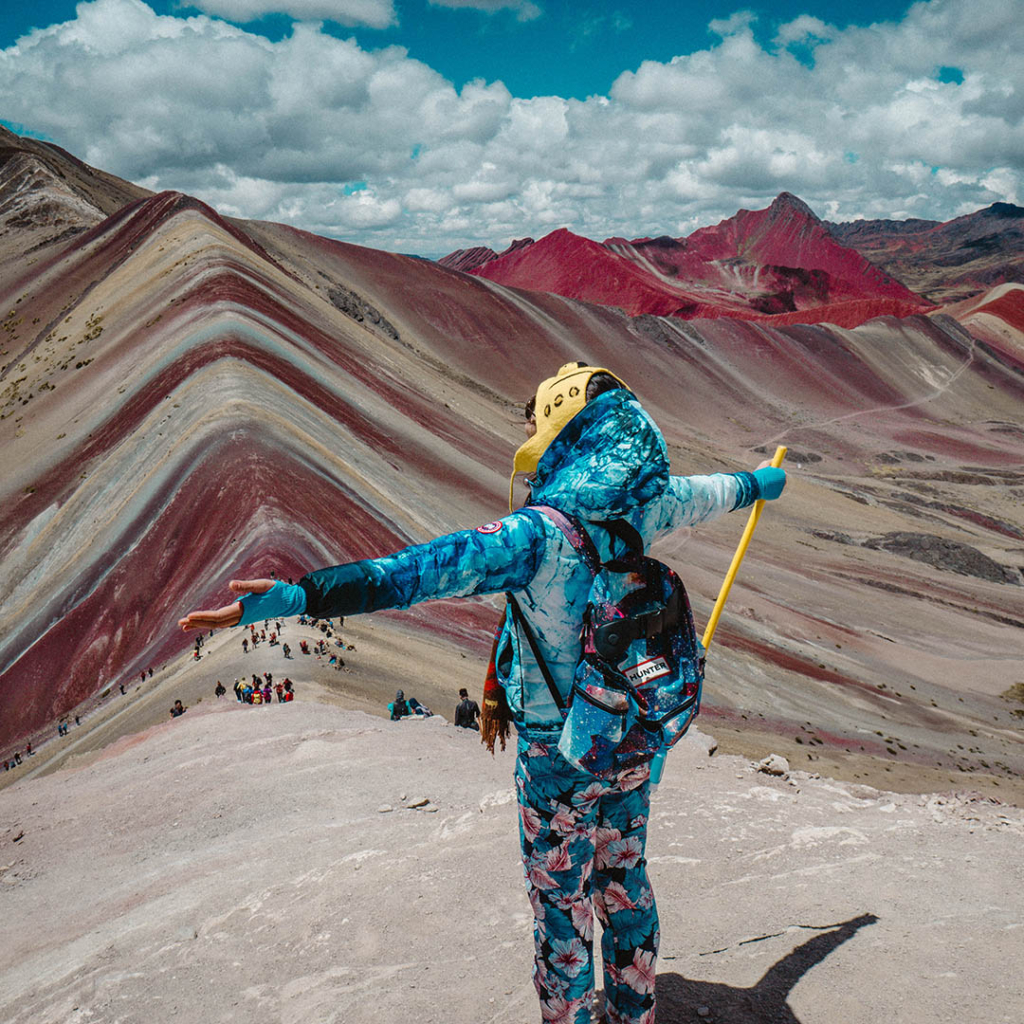
Q: Do you believe in aliens?
A: I do believe in aliens. The galaxy is so big we haven’t even mapped all of it. It’s hard for me to believe we’re alone in the whole galaxy. There are two possibilities: the technology is so far advanced, and they could be watching us, but we cannot detect them, or there could be life that’s at an early stage somewhere, so they don’t have the technology to reach us … that one’s my theory.

